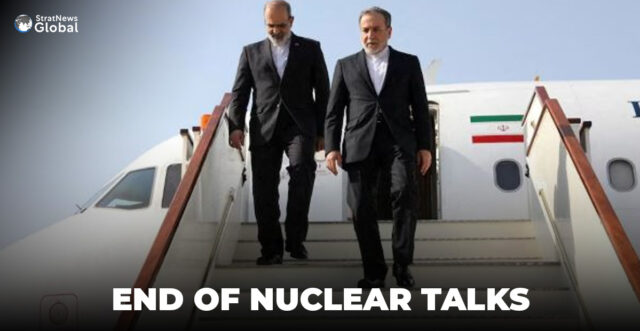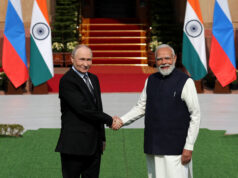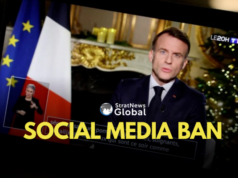Indirect negotiations between Iran and the United States to settle a long-standing nuclear dispute have concluded in Oman, Iranian state media reported. Meanwhile, U.S. President Donald Trump expressed optimism about reaching a new agreement that would prevent Iran from developing a nuclear bomb.
Iranian Foreign Minister Abbas Araqchi and Trump’s Middle East envoy Steve Witkoff held talks in Muscat through Omani mediators for around six hours, a week after a second round in Rome that both sides described as constructive.
Omani Foreign Minister Badr Albusaidi said talks would continue next week, with another “high-level meeting” provisionally scheduled for May 3.
Ahead of the lead negotiators’ meeting, expert-level indirect talks took place in Muscat to design a framework for a potential nuclear deal.
“The expert-level negotiations have reached the stage of detailed specifics and mutual demands … the delegations are returning to their capitals for consultations,” state TV said.
An Iranian official, briefed about the talks, told Reuters earlier that the expert-level negotiations were “difficult, complicated and serious”, without elaborating.
Trump has spent the beginning of his second term in office trying to broker deals on some of the world’s biggest conflicts and crises, including Russia’s invasion of Ukraine, Israel’s assault on Gaza and the thorny issue of Iran’s nuclear programme.
The Islamic Republic, for its part, has signalled it is keen to get sanctions relief as its economy continues to suffer, and after more than a year of military setbacks at the hands of its regional foe Israel.
“Iran remains steadfast in its principled stance on the need to end unjust sanctions and is ready to build confidence about the peaceful nature of its nuclear programme,” Foreign Ministry spokesman Esmaeil Baghaei told reporters in Oman.
Trump, in an interview with Time magazine published on Friday, said “I think we’re going to make a deal with Iran”, but he repeated a threat of military action against Iran if diplomacy fails.
Shortly after Araqchi and Witkoff started indirect talks, Iranian state media reported a massive explosion at the country’s Shahid Rajaee port near the southern city of Bandar Abbas, killing at least four people and injuring hundreds. The reports suggested poor storage of chemicals may have been to blame.
Maximum Pressure
While both Tehran and Washington have said they are set on pursuing diplomacy, they remain far apart on a dispute that has rumbled on for more than two decades.
Trump, who has restored a "maximum pressure" campaign on Tehran since February, ditched a 2015 nuclear pact between Iran and six world powers in 2018 during his first term and reimposed crippling sanctions on Iran.
Since 2019, Iran has breached the pact’s nuclear curbs including “dramatically” accelerating its enrichment of uranium to up to 60% purity, close to the roughly 90% level that is weapons grade, according to the U.N. nuclear watchdog.
U.S. Secretary of State Marco Rubio said this week Iran would have to entirely stop enriching uranium under a deal, and import any enriched uranium it needed to fuel its sole functioning atomic energy plant, Bushehr.
Tehran is willing to negotiate some curbs on its nuclear work in return for the lifting of sanctions, according to Iranian officials, but ending its enrichment programme or surrendering its enriched uranium stockpile are among “Iran’s red lines that could not be compromised” in the talks.
Moreover, European states have suggested to U.S. negotiators that a comprehensive deal should include limits preventing Iran from acquiring or finalising the capacity to put a nuclear warhead on a ballistic missile, several European diplomats said.
Tehran insists its defence capabilities like its missile programme are not negotiable and Tehran’s clerical rulers say its missile programme poses no threat to regional countries. An Iranian official with knowledge of the talks said on Friday that Tehran sees its missile programme as a bigger obstacle in the talks.
Iran fired scores of ballistic missiles at Israel last year after Israel assassinated Iranian commanders and allied paramilitary leaders in a regional escalation sparked by the Gaza war.
(With inputs from Reuters)





